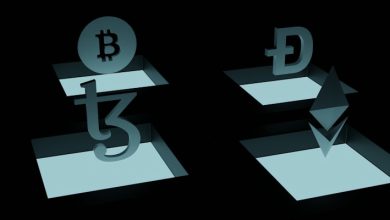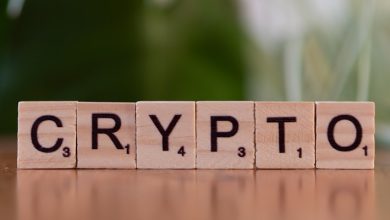The Role of AI in Enhancing Blockchain Technology

- Understanding the synergy between AI and blockchain technology
- Exploring the potential of AI in improving blockchain security
- How AI is revolutionizing transaction speeds on the blockchain
- The impact of AI-powered smart contracts on blockchain networks
- Challenges and opportunities in integrating AI with blockchain technology
- Future trends: AI advancements shaping the evolution of blockchain
Understanding the synergy between AI and blockchain technology
The synergy between artificial intelligence (AI) and blockchain technology is a powerful combination that has the potential to revolutionize various industries. AI, with its ability to analyze vast amounts of data and make predictions based on patterns, can enhance the security, efficiency, and transparency of blockchain networks. By leveraging AI algorithms, blockchain technology can improve consensus mechanisms, streamline transactions, and detect fraudulent activities in real-time.
One of the key benefits of integrating AI with blockchain is the enhanced scalability of decentralized networks. AI-powered solutions can optimize the validation process of transactions, leading to faster processing times and lower transaction fees. This can address one of the major challenges facing blockchain technology – the scalability issue that limits the number of transactions that can be processed per second.
Moreover, AI can improve the accuracy and reliability of smart contracts on the blockchain. Smart contracts are self-executing contracts with the terms of the agreement between buyer and seller directly written into lines of code. By using AI to analyze data inputs and predict outcomes, smart contracts can become more dynamic and adaptive, reducing the need for manual intervention and potential errors.
Another area where AI and blockchain can work together effectively is in data security and privacy. AI algorithms can be used to encrypt sensitive information, detect unauthorized access attempts, and prevent data breaches on blockchain networks. This can help build trust among users and encourage adoption of blockchain technology in industries where data security is a top priority.
In conclusion, the integration of AI and blockchain technology has the potential to unlock new possibilities and drive innovation across various sectors. By combining the analytical power of AI with the decentralized and secure nature of blockchain, businesses can improve operational efficiency, enhance data security, and create new opportunities for growth. It is clear that the synergy between AI and blockchain technology is a game-changer that will shape the future of digital transformation.
Exploring the potential of AI in improving blockchain security
Artificial Intelligence (AI) has the potential to significantly enhance the security of blockchain technology. By leveraging AI algorithms, blockchain networks can detect and prevent various cyber threats more effectively.
One way AI can improve blockchain security is through anomaly detection. AI-powered systems can analyze vast amounts of data on the blockchain to identify abnormal patterns or suspicious activities that may indicate a potential security breach.
Moreover, AI can enhance blockchain security by providing real-time monitoring and threat response. AI algorithms can continuously monitor network activity and automatically respond to security incidents, reducing the time it takes to detect and mitigate threats.
Additionally, AI can be used to strengthen encryption methods used in blockchain technology. By utilizing AI to develop more advanced encryption techniques, blockchain networks can better protect data and transactions from unauthorized access.
Overall, the integration of AI in blockchain technology holds great promise for improving security measures and safeguarding the integrity of decentralized networks. As the capabilities of AI continue to evolve, so too will its impact on enhancing blockchain security.
How AI is revolutionizing transaction speeds on the blockchain
Artificial Intelligence (AI) is playing a crucial role in revolutionizing transaction speeds on the blockchain. By utilizing AI algorithms, blockchain technology can process transactions more efficiently and quickly than ever before. This has significant implications for industries that rely on fast and secure transactions, such as finance, supply chain, and healthcare.
One way AI is enhancing transaction speeds on the blockchain is through predictive analytics. AI algorithms can analyze transaction patterns and predict future transactions, allowing for faster processing times and improved overall efficiency. This predictive capability helps to streamline the transaction process and reduce the time it takes to confirm transactions.
Additionally, AI-powered smart contracts are automating the execution of transactions on the blockchain. Smart contracts are self-executing contracts with the terms of the agreement directly written into code. AI algorithms can analyze and verify these contracts, ensuring that transactions are executed accurately and efficiently without the need for human intervention.
Overall, the integration of AI into blockchain technology is transforming transaction speeds and efficiency, making blockchain more accessible and practical for a wide range of industries. As AI continues to evolve, we can expect even greater advancements in transaction processing on the blockchain, further solidifying its position as a revolutionary technology.
The impact of AI-powered smart contracts on blockchain networks
Artificial intelligence (AI) has revolutionized many industries, and its impact on blockchain networks is no exception. AI-powered smart contracts are enhancing blockchain technology by automating and streamlining various processes. These smart contracts use AI algorithms to analyze data, make decisions, and execute transactions without the need for human intervention.
One of the key benefits of AI-powered smart contracts is their ability to improve the efficiency and accuracy of transactions on blockchain networks. By leveraging AI technology, smart contracts can automatically verify the terms of a contract, ensure compliance with regulations, and execute transactions in real-time. This not only reduces the risk of errors but also speeds up the overall process.
Furthermore, AI-powered smart contracts can help to increase the security of blockchain networks. By utilizing AI algorithms to detect and prevent fraudulent activities, smart contracts can enhance the trust and transparency of transactions. This is particularly important in industries where security and compliance are paramount, such as finance and healthcare.
In addition to improving efficiency and security, AI-powered smart contracts can also enable new opportunities for innovation on blockchain networks. By analyzing large amounts of data and identifying patterns, AI algorithms can help to uncover new business insights and optimize processes. This can lead to the development of new products and services that were previously not possible.
Challenges and opportunities in integrating AI with blockchain technology
Integrating artificial intelligence (AI) with blockchain technology presents both challenges and opportunities for the future of these innovative technologies. By combining AI algorithms with blockchain’s decentralized and secure ledger system, businesses can streamline operations, enhance data security, and improve decision-making processes.
One of the main challenges in integrating AI with blockchain technology is the complexity of managing and processing large amounts of data. AI requires vast amounts of data to train its algorithms effectively, while blockchain technology relies on storing data across a distributed network of nodes. Finding efficient ways to merge these two systems without compromising performance or security is a key hurdle to overcome.
However, the integration of AI with blockchain also offers significant opportunities for enhancing the capabilities of both technologies. AI can help automate various processes within blockchain systems, such as verifying transactions, detecting fraud, and optimizing smart contracts. This automation can lead to greater efficiency, transparency, and trust in blockchain networks.
Furthermore, the combination of AI and blockchain technology can enable new use cases and applications that were previously unattainable. For example, AI-powered predictive analytics could be used to forecast market trends within blockchain-based financial systems, or AI-driven smart contracts could automatically adjust based on real-time data inputs.
Future trends: AI advancements shaping the evolution of blockchain
As technology continues to advance, the future of blockchain is closely intertwined with the progress of artificial intelligence (AI). AI advancements are playing a crucial role in shaping the evolution of blockchain technology, enabling new capabilities and enhancing existing functionalities.
One of the key trends driving this intersection is the use of AI algorithms to optimize blockchain performance. By leveraging machine learning algorithms, blockchain networks can improve scalability, security, and efficiency. This fusion of AI and blockchain is paving the way for more robust and reliable decentralized systems.
Another significant trend is the integration of AI-powered smart contracts into blockchain platforms. Smart contracts are self-executing contracts with the terms of the agreement directly written into code. With the help of AI, these contracts can become more dynamic and adaptive, responding to real-time data and evolving conditions.
Furthermore, AI is enhancing blockchain data analysis capabilities, allowing for more sophisticated data processing and insights. By utilizing AI algorithms for data analytics, blockchain networks can unlock valuable information from the vast amounts of data stored on the chain, enabling better decision-making and predictive modeling.
In conclusion, the synergy between AI and blockchain is driving innovation and pushing the boundaries of what is possible in the world of decentralized technologies. As AI continues to advance, we can expect to see even more exciting developments that will shape the future of blockchain in profound ways.



